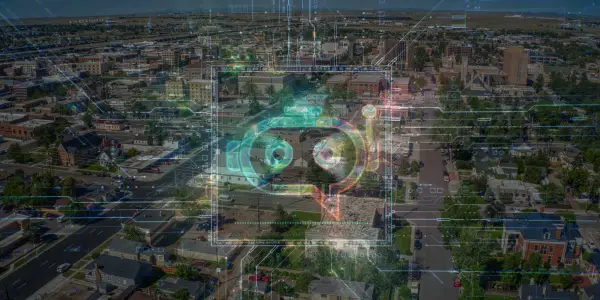Address
304 North Cardinal St.
Dorchester Center, MA 02124
Work Hours
Monday to Friday: 7AM - 7PM
Weekend: 10AM - 5PM
Address
304 North Cardinal St.
Dorchester Center, MA 02124
Work Hours
Monday to Friday: 7AM - 7PM
Weekend: 10AM - 5PM

Politics has always been about people—humans making decisions for their communities. But what if that changed? What if, instead of people, an AI for mayor became the norm? That’s exactly what happened in Cheyenne, Wyoming, where an AI named VIC (Virtual Integrated Citizen) decided to run for mayor. It sounds like something out of a sci-fi movie, but it’s real, and it’s got everyone talking.
AI isn’t just for predicting the weather or recommending movies anymore. It’s already woven into so many aspects of life—think healthcare, finance, even driving. So, why not politics? AI brings some pretty cool strengths to the table:
Data-Driven Decisions
No biases, no emotions—just pure data. AI can analyze mountains of information faster than any human could.
Consistency
An AI doesn’t have a bad day, doesn’t play favorites, and doesn’t get tired. It’s all about making the best decision every time.
Always On
No need for sleep or breaks. An AI mayor would be available 24/7, ready to respond to any situation at any time.’
But, of course, it’s not all smooth sailing. Governing a city isn’t just about numbers and logic; it’s also about understanding people, showing empathy, and making tough calls when the right answer isn’t so clear.
In Cheyenne, the idea of an AI for mayor took center stage when Victor Miller, a local librarian, decided to let VIC call the shots if he was elected. He even referred to himself as a “meat avatar,” meaning he’d just be the human face while VIC made all the decisions.
VIC’s campaign was simple and to the point: use data to solve problems and keep things fair. The AI promised to listen to the community, consult experts, and always be transparent about the decisions it made. Sounds pretty good, right?
But not everyone was on board. The campaign hit some roadblocks—like legal issues about whether an AI could even run for office. Plus, when the votes were counted, people still preferred a human leader, showing that we’re not quite ready to let go of the human touch in politics.
The campaign wasn’t without its hurdles. From the start, it faced legal challenges, with Wyoming Secretary of State Chuck Gray initiating an inquiry into the eligibility of an AI to appear on the ballot. The argument? AI cannot run for office under state law, which led to a compromise where only Miller’s name appeared on the official ballot, excluding VIC.
Adding to the complications, OpenAI, the company behind ChatGPT, suspended Miller’s account multiple times, citing rules against using its technology for political campaigning. Unfazed, Miller quickly created new accounts and rebuilt VIC, showcasing his determination to see the campaign through.

Despite the media attention and the novelty of the campaign, Cheyenne voters overwhelmingly preferred human candidates. In the primary election held on August 20, 2024, Miller and VIC received only 327 votes out of 11,036 cast, amounting to about 3% of the total. Incumbent Mayor Patrick Collins secured the re-election.
In his concession statement, Miller emphasized the historic nature of the campaign, stating,
“As the first person to put artificial intelligence directly on the ballot, offering voters the novel choice of AI governance, our campaign has marked a historic moment in politics and technology”.Victor Miller
Librarian & creator of VIC
So, where does this leave us? The idea of an AI running for office might seem out there, but it’s not as crazy as it sounds. As technology keeps advancing, the role of AI in governance is bound to grow. Maybe one day, we’ll see AI and humans working side by side in leadership, each bringing their strengths to the table.
For now, the Cheyenne experiment has opened up a whole new conversation about what leadership could look like in the future. And while AI might not be ready to take the mayor’s seat just yet, it’s clear that the way we think about governance is changing.
The takeaway? AI isn’t here to replace us—it’s here to help us think differently about how we lead and make decisions. And that’s something worth paying attention to.